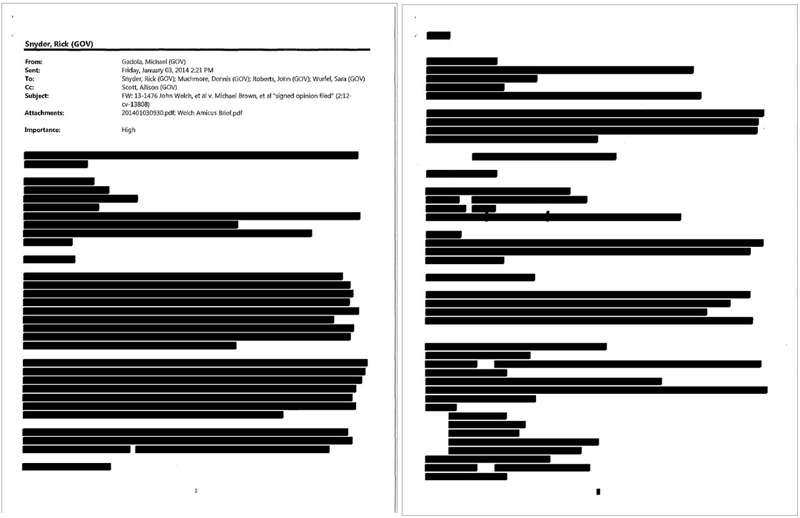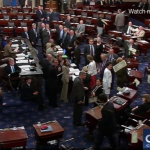They did it again.
The Michigan Legislature has blocked a Freedom of Information Act reform that would end state government’s dubious distinction as one of the most secretive in the nation.
The state Senate has decided to dump a bipartisan FOIA bill adopted by the House in September that would finally make the state House, Senate and governor’s office subject to the open-records rules that apply to virtually every other government official in Michigan.
All but two states require the governor and lawmakers to abide by freedom of information requests from the public or the press. The Senate’s inaction comes after the Center for Public Integrity a year ago ranked Michigan worst in the nation for openness and transparency in government.
The Center’s 50-state report card gave Michigan an “F” in 10 of 13 categories. One of the most glaring shortcomings in Michigan’s dismal corruptibility grade was its special treatment of the legislative branch and the governor’s office in sharing information with the public.
One government watchdog group, Common Cause Michigan, slammed the Senate for failing to act in the current lame-duck session, instead sending the matter back to square one in the new Legislature that will be seated in January 2017. Numerous attempts to end the special treatment for lawmakers and the governor have failed in the Legislature over the past two decades.
“Secrecy only leads to more corruption and cronyism in state government. We saw that with the Flint water crisis, where citizens were denied basic information from their elected officials about why their water was poisoned. It’s a travesty that the Senate will be leaving town without acting on bipartisan open-records reform,” said Common Cause spokesman Dan Farough.
“Michigan’s open-records law is hopelessly out of date, and we remain one of two states that shields the governor and Legislature from the Freedom of Information Act. This issue isn’t going away. The public has a right to demand more accountability and transparency from politicians in Lansing,”
What’s more, the legislation passed by the House was fairly weak in its approach to the problem. First, it was not retroactive and applied only to government records from 2017 forward. Second, it offered numerous exemptions from compliance with FOIA requests.
The approach taken in the House legislation was to create a new agency, the Legislative Open Records Act, or LORA, which would operate similar to the FOIA law. The bills would subject the governor, lieutenant governor and executive office employees to the current FOIA process.
However, under LORA a citizen could not obtain interactions between a lawmaker and a constituent, records in the sole custody of the Republican or Democratic caucuses, or records on internal investigations.
In addition, the governor and lieutenant governor would enjoy exemptions from FOIA. Their offices would not have to share information about appointments, decisions to remove an official, decisions on commutations or pardons, or budget recommendations.








